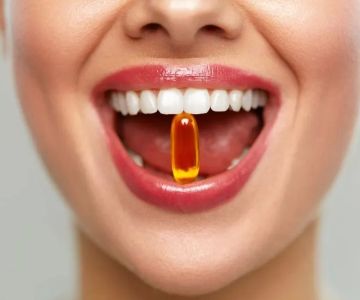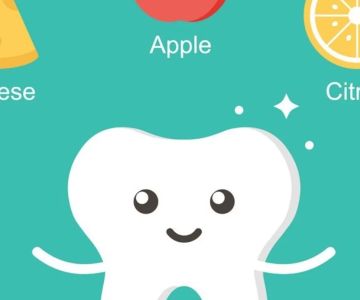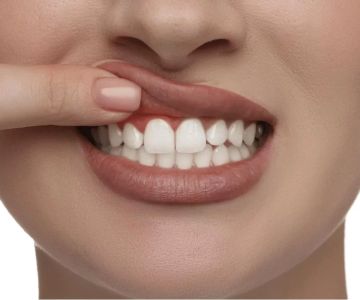Why Oral Leptin Pills Don’t Work: Understanding the Science Behind It
As weight loss trends continue to evolve, oral leptin pills have gained attention as a potential solution to control hunger and promote fat loss. However, many people who try these pills wonder why they don't seem to have the desired effect. If you've ever considered using leptin pills as part of your weight loss regimen, you're probably wondering why they don’t work as expected. Let's dive into the science behind leptin and why oral leptin supplements aren't as effective as they might seem.
1. What is Leptin and How Does It Affect Your Weight?
Leptin is a hormone primarily produced by fat cells, and it plays a crucial role in regulating body weight, appetite, and energy balance. When fat stores increase in the body, leptin levels rise, signaling to the brain that you're full and should stop eating. In theory, leptin helps maintain a healthy body weight by regulating hunger and energy expenditure. However, many individuals experience something called leptin resistance, which prevents this process from working effectively.
2. What is Leptin Resistance?
Leptin resistance occurs when the brain no longer responds to leptin signals effectively. Despite having high levels of leptin in the blood, the brain fails to recognize the signal that it's time to stop eating. This results in increased hunger and reduced fat-burning activity, making it harder for the body to lose weight. Leptin resistance is commonly seen in individuals with obesity, which explains why leptin-based treatments can be less effective for them.
3. Why Oral Leptin Pills Don’t Work
Despite the promises of oral leptin pills, they generally don’t have the desired effects for several reasons:
- Leptin is not absorbed well through the digestive system: Oral leptin supplements must pass through the digestive system before entering the bloodstream. However, leptin molecules are large proteins that are difficult for the body to absorb when taken orally. This means that a significant portion of the leptin is broken down in the digestive tract before it reaches the bloodstream, rendering the pill ineffective.
- Leptin resistance: As mentioned earlier, leptin resistance prevents the brain from responding to leptin signals. Taking more leptin orally won't address the underlying resistance, and it’s unlikely to have any impact on appetite control or weight loss.
- The role of leptin in weight regulation is complex: Leptin plays a role in regulating hunger and energy expenditure, but it's not the only factor involved in weight management. Hormones like insulin, ghrelin, and cortisol also contribute to how the body handles food and energy. Simply increasing leptin levels won't solve the complex issue of weight loss on its own.
4. Alternative Methods for Managing Leptin Resistance
If oral leptin pills aren't effective, what can you do to manage leptin resistance and support healthy weight loss? Here are some strategies that can help:
- Focus on a balanced diet: Consuming a healthy, nutrient-dense diet that includes whole foods like fruits, vegetables, lean proteins, and healthy fats can help improve leptin sensitivity. Avoiding processed foods and excessive sugar can help reduce leptin resistance over time.
- Exercise regularly: Physical activity is a powerful tool in combating leptin resistance. Studies show that regular exercise can improve leptin sensitivity, making your body more responsive to the signals that help regulate hunger and metabolism.
- Prioritize sleep: Poor sleep can interfere with leptin and other hormones that control hunger. A lack of sleep can increase appetite and make it harder to control food intake. Aim for 7-9 hours of sleep each night to help regulate leptin and other appetite-related hormones.
- Consider intermittent fasting: Some research suggests that intermittent fasting may help improve leptin sensitivity by giving the body a break from constant food intake. Fasting periods can allow your body to reset, which may help restore normal leptin function.
5. The Bottom Line: Leptin Pills Are Not the Answer
While the idea of using oral leptin pills to control hunger and promote weight loss sounds appealing, the reality is that they’re not an effective solution. The problem lies in the body's natural resistance to leptin and the challenges in getting leptin to work through oral supplementation. Instead, focusing on lifestyle changes like improving your diet, increasing physical activity, and getting enough sleep are far more effective in tackling leptin resistance and achieving healthy, sustainable weight loss.
In conclusion, if you're struggling with weight loss and thinking of trying leptin pills, it's important to understand the science behind the hormone and how your body responds to it. While leptin plays a role in regulating hunger and metabolism, addressing leptin resistance requires a more comprehensive approach. Make informed choices about your health and consult with a healthcare professional to find the right strategies that will work for your body.







 Pediatric Dental Associates of Philadelphia - Allegheny Ave4.0 (2097 review)
Pediatric Dental Associates of Philadelphia - Allegheny Ave4.0 (2097 review) Dr Stein Dental Group4.0 (226 review)
Dr Stein Dental Group4.0 (226 review) Dentistry for Life4.0 (712 review)
Dentistry for Life4.0 (712 review) Dental Solutions of Deptford4.0 (647 review)
Dental Solutions of Deptford4.0 (647 review) Sangchi Tang, DDS5.0 (1 review)
Sangchi Tang, DDS5.0 (1 review) Green River Family Dentistry5.0 (63 review)
Green River Family Dentistry5.0 (63 review) The Importance of Oral Health Education During Pregnancy for a Healthy Pregnancy
The Importance of Oral Health Education During Pregnancy for a Healthy Pregnancy Best Tips for Brushing Your Teeth Properly for Healthy Gums: Essential Techniques for Oral Health
Best Tips for Brushing Your Teeth Properly for Healthy Gums: Essential Techniques for Oral Health Why Skipping Dental Checkups Can Lead to Bigger Oral Health Problems
Why Skipping Dental Checkups Can Lead to Bigger Oral Health Problems Advantages of Porcelain Dental Restorations
Advantages of Porcelain Dental Restorations How Can Diabetes Cause Tooth and Gum Problems? Preventing and Managing Oral Health Issues
How Can Diabetes Cause Tooth and Gum Problems? Preventing and Managing Oral Health Issues Healthy Habits for Promoting Good Oral Health and Hygiene: Tips for a Healthy Smile
Healthy Habits for Promoting Good Oral Health and Hygiene: Tips for a Healthy Smile